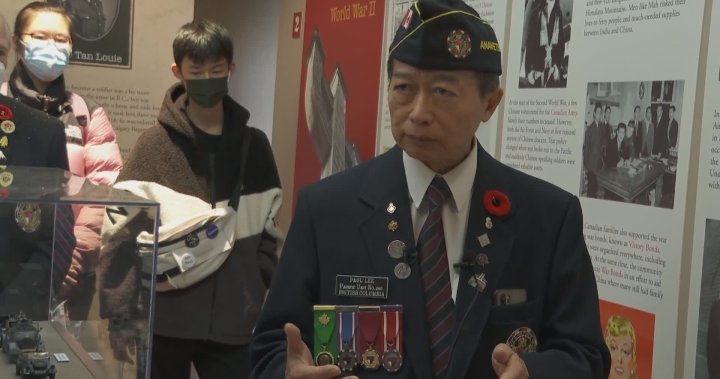At a time when they were considered second-class citizens, they risked their lives for our nation.
A group of Chinese-Canadian youth honoured Canadian troops on Sunday at the Chinese-Canadian Military Museum in Vancouver’s Chinatown in honour of Remembrance Day.
“I feel like it is really important for us, especially as Chinese, to learn their history, and to learn their struggles that they’ve come through,” A student named Anita said.
200 Chinese Canadians volunteered for the Canadian army during World War One, despite the fact that they had long endured bigotry in Canada.
Chinese Canadians fought in the Second World War in numbers exceeding 600.
It’s difficult for Canadian Armed Forces veteran Paul Lee to describe what some of his fellow Canadians, who became prisoners of war, endured in Japanese war camps.
“Many Canadian POWS are severely undernourished.
Through tears, Lee recalled the scene: “It was skeletal, it was so awful, so tragic, that sometimes I cannot even continue.
The Chinese-Canadian Military Museum’s walls feature tales of valour in the face of prejudice.
Lee, who is the museum society’s vice-president and curator, is telling young Chinese Canadians about the tragic past.
In an interview with Global News on Sunday, Lee stated, “It’s quite emotional because of the way we were handled earlier.”
Long before the Chinese Immigration Act was enacted in 1923, the country’s first Chinese immigrants were subject to a head tax. Known as the Chinese Exclusion Act, it prevented the majority of Chinese immigrants from entering Canada until it was repealed by the government in 1947.
The ability to vote was likewise only granted to Chinese Canadians after they had fought in World War II.
By 1949, all eligible Chinese Canadians were finally given the right to vote federally and provincially.
According to the Chinese-Canadian Military Museum Society, these rights allowed Asians to enter fields like law, engineering, and medicine that were previously off-limits to them.
“Our youth need to understand and know what had happened and what our ancestors had fought for, and how today did not come easy,” said Wendy Yuan of the Vancouver Sunshine Lions Club, which organized Sunday’s tour and tribute.
The hope is the youth, who owe some of their freedoms and democratic rights to Chinese Canadian veterans, will now carry the torch forward.
We must remember what has already occurred since that is how we learn from history and avoid repeating the same errors, according to Lee.
Ahead of Remembrance Day, Chinese-Canadian veterans are honoured in a “very emotional” ceremony.

